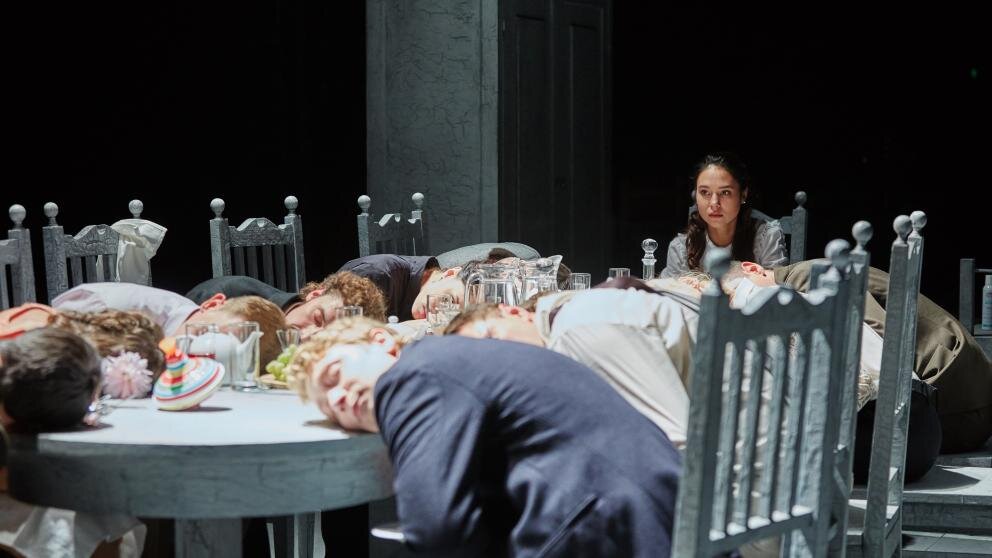I watched this via Stage Russia HD, however it was available there only for a limited time. It is also available (For a fee) via Digital Theatre subscriptions.
I first read about this production last year, when researching Timofey Kulyabin as his production of Ivanov was on at Barbican during a visit. You can read my thoughts on that production here. His production of The Three Sisters is almost entirely non-vocalized; the characters, aside from Ferapont, speak in sign language. This does not mean it is silent, however. The production has a detailed score that creeps on you. At first it is high heels clicking on the floor, or floor boards creaking. It is characters playing a game in the next room, or Andrij practicing the violin. Toys squeaking, dishes clanking, clocks ticking - all the sounds of life. This score swells and rescinds magically as the story goes on.
The set enables us to see all the rooms of the house at once - a large open space, with smaller rooms set up and demarcated using lines on the floor, like taping out a set, except that it doesn’t grow upward. These lines do stretch upward in the imaginations of the actors, however, who peek around walls, and behave as if they are there. Thus while a scene may be occurring in one area, wordless, the sounds from another room emphasize, engage, and intentionally distract from what is at play. These sounds make the relationships between the characters clearer than they have ever been.
We see Natasha fretting and primping while Masha broods. We see Irina lamenting her boredom with the choices available to her, while we see servants working around her.
The production is placed now, but also not-now. Characters receive messages on smartphones, and these devices are even used to light an entire set of scenes after the fire, the eerie blue glow of digital interaction a haunting reminder that our own times are not so far departed from those of turn-of-the-twentieth Russia.
The boredom, the excess…these were all too prescient as we sit here in our collective spaces. So many of us with the privilege of boredom, of devices to be bored of, while those less fortunate must go out and work in these dangerous times, risking their lives to deliver us sushi or mcdonalds or groceries in the comfort of our homes, so WE don’t have to go out.
Most striking were the moments, well chosen by Kulyabin, where the movement and sound stopped entirely, and we saw the characters just sit and wait, only the sound of a ticking clock to accompany them. The show was truly striking, comfortably holding your attention despite its 4 hour running time. The time flew by. Yet didn’t.

